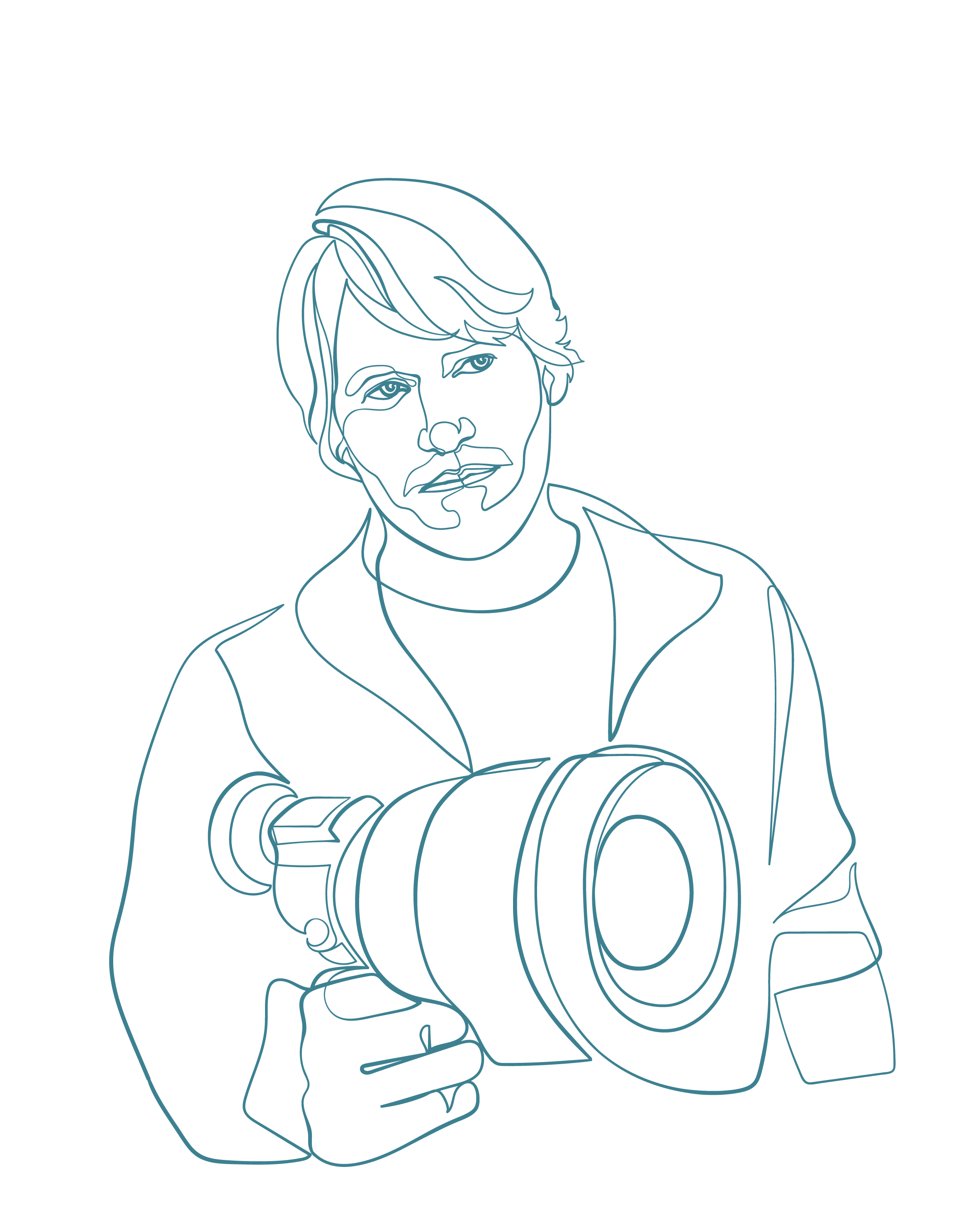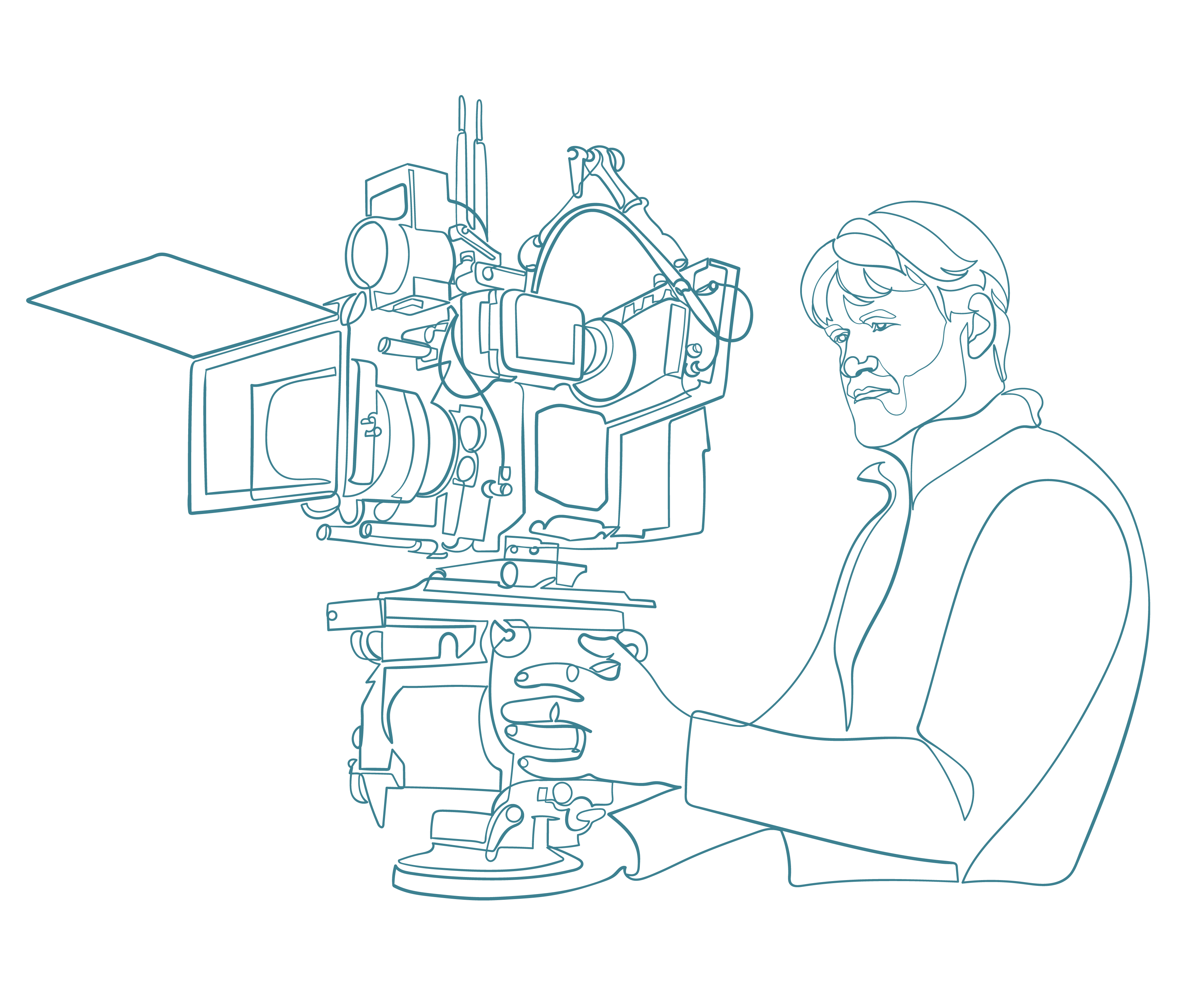
Born in the United States, Jeffrey Waldron spent his formative years around the world, living in seven cities in four countries on three continents before graduating from high school and moving to Los Angeles to study cinematography.
His episodic work includes award-winning series for HBO, Apple, Amazon, Netflix, and Hulu including “A League of Their Own”, “The Morning Show”, and “Dear White People”. His feature work includes films for A24 and Walt Disney Pictures, with premieres at Sundance, Berlin, Toronto, Telluride, Tribeca and SXSW, and has been nominated for Best Cinematography at the Independent Spirit Awards and the Emmy for Best Cinematography in a Documentary.
With curiosity and compassion for unheard stories, Jeffrey has directed and photographed documentaries in Brazil, Rwanda, Thailand, Cambodia, India, and New Zealand. His passion lies in collaborating to unforgettably visualize unique points of view.

On Dear White People:
“(Barry Jenkins) and cinematographer Jeffrey Waldron play the camera like a musical instrument. … When the show reaches its traumatic climax, Jenkins and Waldron abandon the wide canvas they’d been working with, infusing the frame with a terrifying, suffocating claustrophobia. It’s masterful work.” – Vulture
“The collaboration between the director and cinematographer Jeffrey Waldron led to visuals rich in nuanced detail, layered with complexity, while cinematically adding ocular flavor to storylines.” – NoFilmSchool
“Cinematographer Jeffrey Waldron’s color palette is defined by deep greens, reds, and golds, rounded out with hazy pastels. The bolder colors in the clothes and set design pop out violently, making the faces of the perfectly lit leads a soft resting place for the eye.” – Slant
“Gorgeously shot in a warm palette, “Dear White People” is alive with vibrant cinematography.” – The Playlist
On Transpecos:
“Rivaling the multiple star turns in Transpecos is one from someone not actually in the film. Cinematographer Jeffrey Waldron’s use of the open-air desert panoramas initially offer the atmosphere of freedom and autonomy. Proving false, the desert becomes a trap, a dusted prison, and unceremonious burial site.” – Austin Chronicle
“An exploration of the shifting borders between right and wrong, loyalty and dishonor, all brilliantly set against the backdrop of Jeffrey Waldron‘s wondrous cinematography.” – Huffington Post
“Clean, meditative cinematography from Jeffrey Waldron contributes a sharp visual barb to the moral dismay.” – Silver Screen Riot
“Shooting almost entirely outdoors, cinematographer Jeffrey Waldron has a keen eye for his surroundings, best shown with one magnificent image of the trio backlit against the setting sun.” – Variety
“[The filmmakers] establish an atmospheric realism borne out of evident research of the milieu, strikingly captured by cinematographer Jeffrey Waldron.” — LA Times
On You Hurt My Feelings:
“The other gratifying element is the casual yet affectionate way that DP Jeffrey Waldron captures glimpses of various New York neighborhoods, situating the characters in a relatively confined radius that naturally to them feels like the center of the world. It’s not a bad place to spend an hour and a half.” – Hollywood Reporter
“Throughout it all, cinematographer Jeffrey Waldron completely captures the intimidating yet inviting aura of New York City and suffuses the film with its style, soul, and spirit and that classical cinema feeling. There’s just such an effortless energy exuding from it at all times that it’s near impossible not to be wrapped up in its little wonders and sucked into this troupe’s daily trials and tribulations.” – Next Best Picture
“Jeffrey Waldron’s cinematography is crisp and cheerful, and doesn’t fuss over the pleasant New York City locations because the characters don’t either; this is just where they live.” – Critics Notebook
“Handsomely shot by cinematographer Jeffrey Waldron.” — Washington Post
“Cinematographer Jeffrey Waldron’s subtle work finds several simple but evocative compositions, offering a beautifully shot scene of Beth and Don reconciling on the couch or the discerning final shot that leaves us wondering if the characters have learned anything. A restrained and comfortable energy eases the viewer into the proceedings and makes the runtime flow effortlessly.” — Deep Focus
